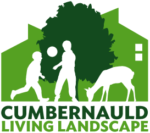Wild Ways Well 14 May
,
Learning is enjoying
Warning! This is a positive message!
I have been thinking a lot recently about how we learn and what are the best conditions for learning. The reason is: I do love learning! I have also been thinking about the magic of discovering something new since I started to get involved with the Wild Ways Well.
I thought first of how this word can resonate in us. Like all the words we use ‘learning’ is shaded with our own experience of the term.
Try a little brainstorming on the word ‘learning’ you might get the word ‘school’ bouncing back to you and I appreciate that this only might bring back some negative experiences around learning with disastrous consequences on self-confidence.
It can also bring about a sense of effort and struggling. I personally remember the ‘can do better if tries harder’ kind of motto written on my report card every trimester (Ah.. French education!).
However, if you look at it frankly, how much of what you have learnt at school can be accessed now? What do you actually remember? You have clearly not tried hard enough!
We all know that we were rubbish in the subjects we didn’t like. So yes, enjoyment definitely takes a huge part in learning.
And what about the effort and the struggle? I guess it always good to do your best, but there is still a balance between that and beating yourself up.

I was lucky to be passed on a book by a friend called ‘the Inner game of tennis’ by Timothy Gallwey. Although I have not the slightest interest in tennis, I got some relief from reading it.
The author is a former tennis coach and talks about the way people try their best by putting a lot of effort in whatever they want to learn. This very effort basically tenses the body and stresses the mind. Learning needs a relaxed state! It is the stage fright versus the shower song.
He talked about Self 1 and Self 2. Self one is basically our ego sense of self, the one that wants to be right and criticizes everything (mostly negatively!). And he can be nasty! Self 2 is the silent one that knows and does – I would say our instinct.
The idea is that if you want to learn something new:
- have a clear goal of what you want to achieve,
- find yourself a good model of that and
- have in mind what you would be like to know this.
For example, if you try to catch a ball, you would need to see someone doing it and you will have the image of your hand catching it at the very moment when the ball is directed to you.
So it is also all about self-confidence, trusting your self 2 and letting it getting along with it.
Letting go of the condemning self 1 is really hard, but apparently a thing from Western culture. I remember listening to the Dalai Lama saying that self-deprecation is not a something they suffer from in his country…
So, the best learning happens when we are relaxed, we enjoyed what we are doing and we are not under pressure for results.
This is the natural way of learning that we witness in toddlers who just soak up everything new they encounter without even knowing they do it; and they are so good at mimicking! I can hear the objection here: yes, but they have a brand new brain. Yes, they do. In fact, they enjoy the fact that the areas of their brains can connect in many different ways – and that flexibility is what is lost in adulthood when we get fixed connections between areas of our brains and we our habits of thinking are then much more difficult to change.
But let me tell you that the good news is that you can still change your brain as an adult by learning new habits, yeah!
In short, everyone should be allow to follow their heart and let joy guide them in their choices.
Wild Ways Well is a partnership project between The Conservation Volunteers and The Scottish Wildlife Trust, delivered by Cumbernauld Living Landscape and funded by the Green Infrastructure Community Engagement Fund and Transport Scotland with the support of Scottish Natural Heritage.
Claire Bailly
